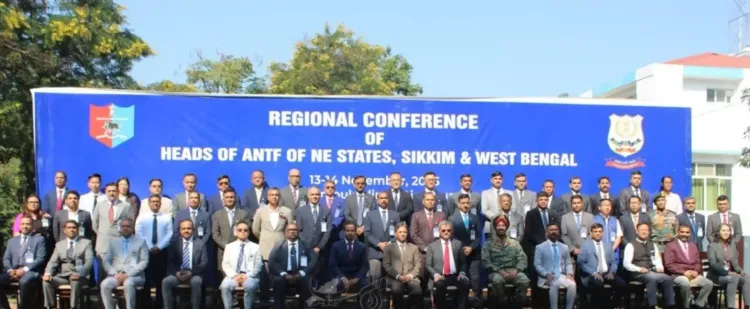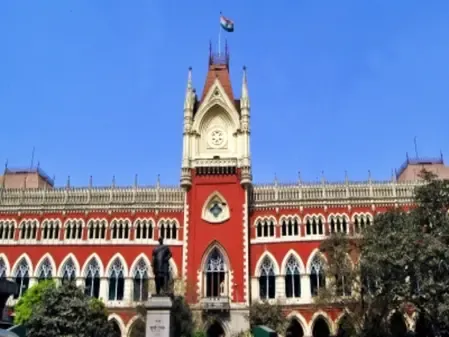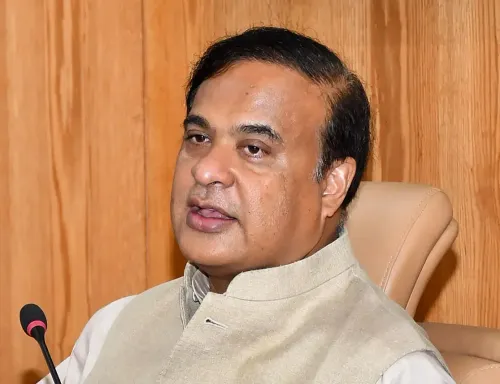How Are Insurgent Groups Involved in the Narcotics Trade from Myanmar to NE?

Synopsis
Key Takeaways
- Significant influx of narcotics from Myanmar into NE India.
- Collaboration among states is essential for effective enforcement.
- Drug trafficking poses serious public health risks.
- Need for dedicated agencies to combat drug-related issues.
- Enhanced forensic capabilities are crucial for effective prosecution.
Kohima, Nov 13 (NationPress) The Director General of the Narcotics Control Bureau (NCB), Anurag Garg, stated on Thursday that a significant volume of heroin and other narcotic substances infiltrates the Northeastern states from Myanmar. This influx is compounded by the involvement of various insurgent groups and organized crime syndicates engaged in drug manufacturing and related illicit activities.
The NCB chief emphasized the critical need for collaborative efforts among the Northeastern states to enhance enforcement strategies and improve intelligence sharing in combating narcotics.
While addressing the Regional Conference for Heads of Anti-Narcotics Task Forces (ANTF) from Northeastern states and West Bengal, Garg pointed out that drug trafficking incites various organized criminal operations, posing severe risks to public health and safety, which in turn leads to increased crime rates, violence, and strain on healthcare services.
A survey conducted in 2019 by the Ministry of Social Justice and Empowerment (MoSJE) revealed that drug abuse rates in the Northeastern states far exceed those in other regions of India.
Garg, an esteemed IPS officer, informed attendees that the NCB has established state-level Anti-Narcotics Task Forces (ANTF) across all states and Union Territories, serving as the frontline defense against drug-related issues.
He also outlined several key discussion topics for the conference, including strategies to dismantle drug kingpins, enhance inter-agency integration, share real-time intelligence, address opium and cannabis cultivation, leverage digital platforms for intelligence, and improve narcotics case prosecutions.
During his speech, held at the Police Complex in Chumoukedima, the Director General of Police for Nagaland, Rupin Sharma, noted that the lengthy and porous 1,643 km border with Myanmar, combined with difficult terrains and governance issues in Myanmar, as well as its proximity to the Golden Triangle (Myanmar-Laos-Thailand), renders the Northeast, especially Nagaland, exceedingly vulnerable.
Sharma asserted that drug trafficking and use transcend mere law enforcement challenges; they pose a direct threat to internal security and jeopardize the future of the youth.
According to the DGP of Nagaland, the circulation of drugs and drug money along these routes fuels the nexus of organized crime, insurgency, and narco-terrorism. Thus, dismantling drug cartels is synonymous with enhancing national security.
He reported that an estimated 1.2 lakh drug users in Nagaland consume heroin, locally referred to as 'shaanflower' or 'SF', due to its traditional roots in the Shaan province of Myanmar. For this conference, he proposed focusing on three pivotal pillars: coordination, enforcement, and accountability.
Coordination is essential among various agencies, within the criminal justice system, and between law enforcement and governmental civilian branches alongside the public.
Sharma encouraged law enforcement agencies to urgently enhance capabilities in communication surveillance, IPDR analysis, darknet monitoring, cryptocurrency tracking, and digital forensics.
He proposed forming a dedicated Northeast Anti-Drug Trafficking Agency, which would act as a regional nodal point for inter-state intelligence, border surveillance management, and rehabilitation program oversight, with a Director General leading it.
The DGP also highlighted the pressing need to fortify forensic infrastructure with new labs, mobile units, and advanced technology enhancements, including DNA profiling and mass spectrometry for quicker and more reliable drug analysis.
He suggested launching the 'Nasha Mukt Bharat Helpline and Reward System', which would provide a 24/7 anonymous reporting platform for drug-related activities, offering multilingual support and financial incentives for information leading to arrests, from small dealers to major trafficking cartels.
Furthermore, the Nagaland police chief advocated for comprehensive legal reforms under the NDPS Act. Sharma reiterated that the solution lies in multi-agency coordination, targeted investments, and a sensitive approach to unique regional issues.
He urged collective action, cross-border collaboration, and the resolute pursuit of a drug-free future for the Northeast and the entirety of India. The conference was attended by officials from the Narcotics Control Bureau (NCB), the Ministry of Social Justice and Empowerment (MoSJE), and police departments from all eight Northeastern states and West Bengal.









